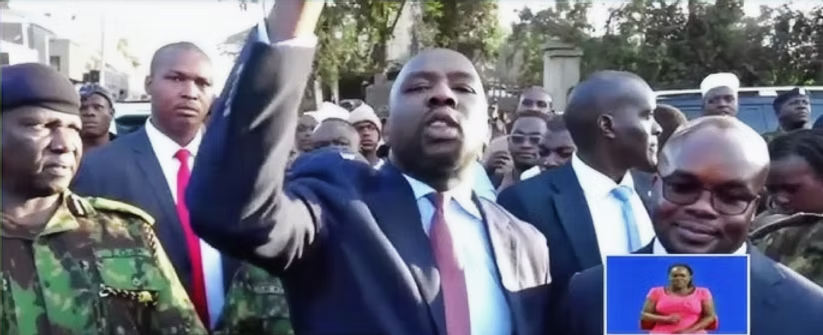Hot on the heels of last week’s policy directive on the use of force and firearms, the Independent Policing Oversight Authority (IPOA) released its extensive report on the June and July public protests this week. This week, the National Council on the Administration of Justice and the Attorney General’s Forum held separate talks to review how Article 37 and the right to assembly could be realised. Could these efforts signal that the season of deadly protests might finally be coming to an end?
The IPOA report is the most detailed look yet at the four major protests held on June 12, 17, 25, and Saba Saba Day on July 7. 65 people were killed, and 342 civilians and 171 police officers were injured across 18 counties. In other words, 3 died and 21 human beings were injured every day over this period. The report is damning in its criticism of police conduct in all instances, except for those under the Mombasa Regional Command.
The report reads as a police handbook of what not to do during a protest. Refuse to receive notices and then target protest organisers. Deploy officers without nametags or service numbers operating from vehicles with concealed number plates. Let hired armed counter protesters attack protesters and bystanders, destroy and loot private businesses and government offices. Fire tear gas at volunteer medics providing emergency healthcare. Don’t hydrate, feed or treat police officers exposed to long hours of conflict with protesters, counter-protesters and criminals.
The report squarely blames the police for the deaths, injuries and destruction over the last month. By viewing the protests as riots and not protests, the police “undermined any possibility of holding peaceful protests.” It calls for greater policy and operational clarity on how the police prepare for spontaneous protests and counter-protesters, but also what protest organisers do when their notices are ignored or refused.
As this column has argued for a year, the police need to actively engage protest organisers and their marshals as well as those willing to provide voluntary medical services. While police commanders are obligated under the IPOA Act to immediately brief IPOA on all fatalities, less than 3 per cent of the recent deaths and serious injuries by gunshot wounds were reported. The trend of deploying the Kenya Forest Services and the Kenya Prisons Service, documented in the report, also needs further examination.
In this context, last Friday’s Interior Ministry policy directive on the use of police force and firearms was refreshingly clear. After weeks of conflicting roadside instructions, the directive cites Section 61 and Schedules 6A–6B of the National Police Service Act. It restores a sense of the human rights-based policing that the Executive expects from the National Police Services. The 34 guidelines ban the use of extrajudicial punishment, emphasise persuasion and de-escalation, and allow lethal force only when the lives of officers or the public are at risk.
Police officers must take better care of children, the elderly, persons with disabilities and gender-based vulnerable groups. Their leadership must introduce counselling, training in de-escalation skills and more self-protective gear. Police Commanders are now required to report to and cooperate with IPOA after every serious incident.
The new directive lacks clarity on handling spontaneous protests, protest-related sexual violence, banning masked officers in unmarked cars, and enforcing accountability for non-compliance. The Police Inspector General has yet to publicly support it. However, if fully implemented, it could be the game-changer Kenya needs right now.
With protests possibly on pause until August 8, this is an ideal time for the government, police, protest organisers, human rights groups, and the public to review the guidelines, fill gaps, and find better ways to organise and respond to protests.
The memory of Mwalimu Albert Ojwang’, vendor Boniface Kariuki, pre-teen Bridgit Njoki, and the 62 others who have lost their lives recently must guide future protest-related policing. The reaper has claimed too many lives. While it must be held accountable, we must also prevent more deaths and destruction.
Irũngũ Houghton is Amnesty International Kenya’s Executive Director and writes in his personal capacity. Email: [email protected]


